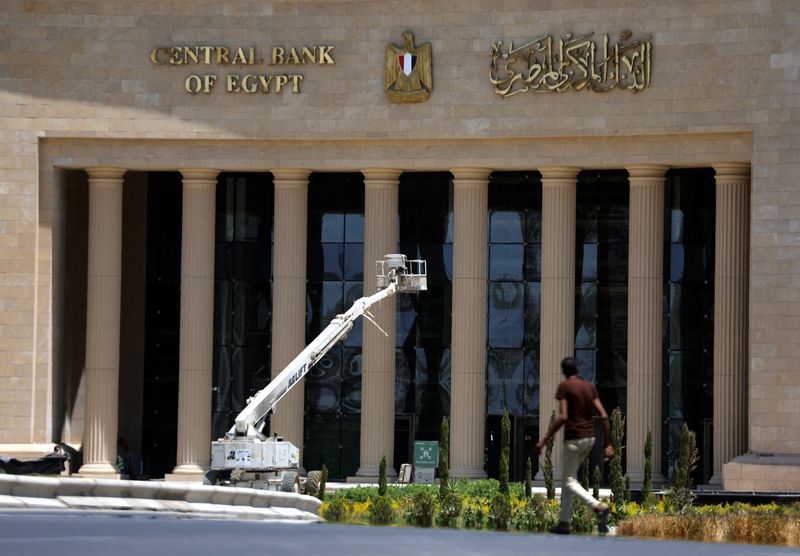CAIRO (Reuters) -Egypt's current account fell into deficit in the second quarter, reversing a rare surplus in the same period of 2023 as imports rose and Suez Canal revenue plunged, the central bank said on Tuesday.
It was the first full quarter reported since Egypt sold the rights to develop prime Mediterranean coastline to Abu Dhabi for $35 billion in February and signed an $8 billion financial support programme with the International Monetary Fund in March.
The current account flipped to a $3.71 billion deficit in the April-June quarter from a $557 million surplus a year earlier, according to Reuters calculations. Egypt, long suffering from chronic currency crises, has recorded only two quarterly surpluses in the last few years.
Imports in the second quarter jumped to $19.2 billion from $16.1 billion a year earlier after non-petroleum imports surged by $2.7 billion.
Exports fell by a marginal $126 million as those of petroleum, including natural gas, declined by $937 million to $1.12 billion. The drop in hydrocarbon exports was counterbalanced by a $811 million increase in non-petroleum exports to $7.23 billion.
Egyptian natural gas and petroleum production has been falling off in recent years even as consumption increases.
Suez Canal revenue fell to $870 million from $2.54 billion a year earlier, a victim of attacks on Red Sea (NYSE:SE) shipping by Yemen's Houthis who say they are acting in solidarity with Palestinians in Gaza.

Tourism revenue remained resilient despite regional conflicts, rising by $196 million to $3.52 billion, while worker remittances climbed $2.84 billion to $7.47 billion. Egyptians abroad had been holding back on sending money home before a major devaluation that was part of the March IMF agreement.
Net foreign direct investment soared to $22.35 billion in the second quarter from only $2.09 billion a year earlier, largely due to the Abu Dhabi land deal.